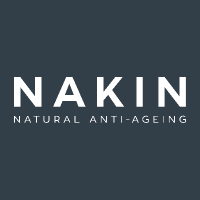Do Collagen Supplements Work?

A question that we have been hearing a lot lately is if collagen supplements work? It would be hard not to have heard about collagen supplements as they seem to be everywhere, and there is so much marketing attached to them. So, the question is do they actually work? This is a hard one to answer because we do not know the information on every collagen supplement out there, but what we do know is that when we put nutrients into our body internally they tend to go to the place that it is really needed in our body, which might not always be to our skin.
At Nakin we haven't gone down the supplement route because we believe that a good cleansing routine, followed by treatments and creams is one of the best ways to look after our skin, because the nutrients go directly to the area we want them to. This is why we developed our natural anti-ageing face products range. We do know that collagen supplements are hugely popular, and they are definitely something that we prefer to Botox and fillers, plus there is lots of evidence to show that they can have improvements to our skin.
Do Collagen Supplements Work?
If you are using a collagen supplement and noticing results, then that’s great and we are not here to deter anyone from using collagen supplements. However, with the explosion of them in recent times we do feel they should be used after lots of research. The problem that we feel with collagen supplements is that when collagen is digested, it breaks down into amino acids. These amino acids can then be utilised by the body to form various proteins; however, there's no certainty that they will specifically aid in replenishing collagen levels in the skin.
While collagen supplements are widely marketed as a way to improve skin health and reduce signs of ageing, the science behind their effectiveness is not as straightforward as it seems. When consumed, collagen is broken down into amino acids by the digestive system—just like any other protein. These amino acids are then distributed throughout the body to areas where they are most needed, which may not necessarily be the skin. Factors such as your body's current repair requirements, overall nutrient balance, and genetics play a significant role in determining how these amino acids are utilised. Therefore, while collagen supplements might be able to contribute to overall health and our skin, there is no guarantee that they specifically target the skin, making them potentially less effective as a direct solution for skin-related concerns.
The reason that collagen supplements have become increasingly popular in recent years, is because they provide the body with a direct source of collagen, which is the holy grail when it comes to youthful, firm and bouncy skin.
Studies have shown that taking collagen supplements can improve skin elasticity and hydration, reduce wrinkles and fine lines, and even promote hair and nail growth. Collagen also plays a crucial role in joint health, as it helps maintain cartilage and reduces inflammation. It may even aid in muscle repair and recovery after strenuous exercise.
But not all collagen supplements are created equal. It is essential to do your research and choose a high-quality supplement from a reputable brand, which has lots of genuine reviews. Look for products that contain hydrolyzed collagen, as this type is easier for the body to absorb. Additionally, ensure that the product is free from fillers and unnecessary additives.
In addition to taking a collagen supplement, you can also support your body's natural production of collagen by consuming foods rich in vitamin C. This essential nutrient plays a vital role in collagen synthesis and can be found in foods such as citrus fruits, strawberries, broccoli, and peppers.
Another way to support your body's collagen production is by avoiding habits that can damage collagen levels. Smoking cigarettes and excessive sun exposure can both decrease our body's ability to produce collagen. Therefore, it is important to limit or avoid these behaviours for optimal overall health.
As with any supplement or lifestyle change, it is always best to consult with a medical professional beforehand, to ensure it is right for you.


Leave a comment